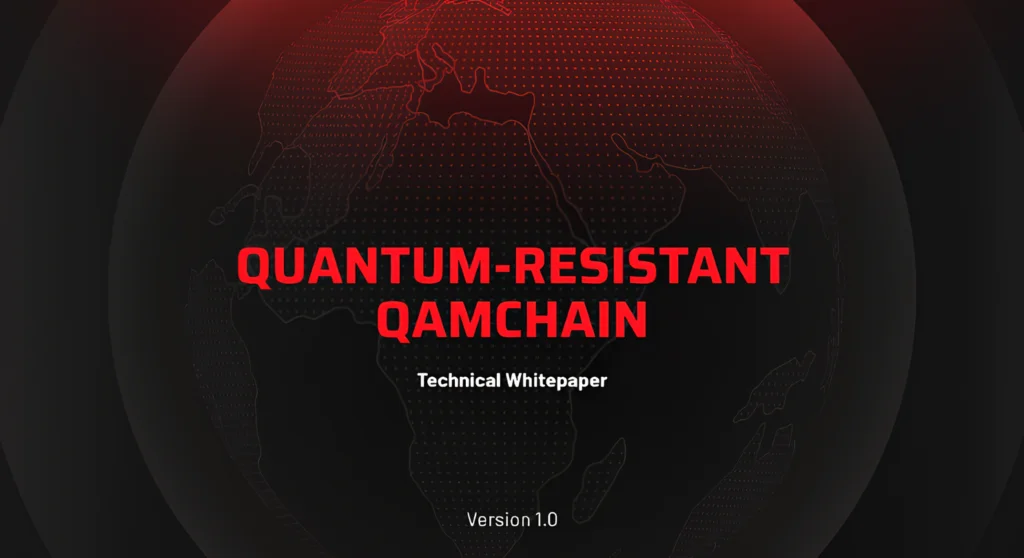Insider Brief
- Quantinuum has launched its Generative Quantum AI (Gen QAI) framework, leveraging quantum-generated data to enable advances in medicine, financial modeling and global logistics optimization.
- The Gen QAI framework, powered by Quantinuum’s H2 quantum computer, sets a new standard in AI by using quantum-generated data to enhance AI model fidelity, unlocking solutions for previously unsolvable challenges.
- Industry collaborations, including projects with HPE Group in automotive and healthcare firms like Merck KGaA, are demonstrating the transformative potential of Gen QAI in areas such as battery development, drug delivery, and climate solutions.
Quantinuum is using quantum-generated data to improve artificial intelligence, a move that could expand AI’s reach into pharmaceuticals, financial modeling, and logistics, according to a news release from the company. Quantinuum adds that the new Generative Quantum AI framework (Gen QAI) is designed to make AI more effective in areas where classical computing falls short, marking a shift from theoretical potential to real-world applications.
The company said Gen QAI leverages its H2 quantum computer to train AI models with data generated at a precision level that classical systems cannot match. The result, it claims, is AI models capable of solving problems previously considered beyond reach.
“We are at one of those moments where the hypothetical is becoming real and the breakthroughs made possible by the precision of this quantum-generated data will create transformative commercial value across countless sectors. Gen QAI is a direct result of our full-stack capabilities and our leadership in hybrid classical-quantum computing, delivering an entirely new approach that stands to revolutionize AI,” said Dr. Raj Hazra, President and CEO of Quantinuum.

Dr. Hazra joined an expert panel at the 2025 International Year of Quantum (IYQ) ceremony in Paris to share further insights into our groundbreaking Gen QAI development.
The approach could significantly broaden access to AI-driven solutions. By enabling more sophisticated training data, the technology may improve AI’s ability to work with limited datasets, making high-performance models more viable in industries that lack large amounts of structured data.
“While some may suggest that a standalone quantum computer is still years away, the commercial opportunities from this breakthrough are here and now,” Dr. Thomas Ehmer from the Healthcare business sector of Merck KGaA, Darmstadt, Germany, said in a statement. “The generation of meaningful synthetic data, specifically when you do not have many training data, is nontrivial and we see it as a new era for AI unlocked by quantum technologies. The Helios system, launching later this year will hopefully enable AI to be used in unprecedented ways and unlocking transformative potential across industries.”
Quantinuum said Gen QAI will be used in commercial AI projects across industries such as automotive, pharmaceuticals, and materials science. The company is working with partners, including HPE Group in Italy, which is using quantum-generated data for battery development, aerodynamic optimization, and fuel innovation in motorsports.
Enzo Ferrari, Executive Vice President of HPE Group, said in the statement: “At HPE, we have a long standing tradition of employing cutting-edge technologies for our clients in the motorsport industry. We are thrilled about our collaboration with Quantinuum, leveraging quantum generated data for applications such as battery development, aerodynamic optimization and fuel innovation.”
The credibility of Gen QAI rests on a quantum computer that is so powerful that it cannot be simulated, otherwise it’s not actually quantum. Quantinuum not only has the quantum system to deliver that power, but it has an aggressive plan to increase the performance of its hardware, which has implications for the development of Gen QAI and its expanding universe of use cases.
For example, the company expects its Helios system, set to launch in mid-2025, to extend the Gen QAI capabilities further, particularly in drug discovery and climate science. Helios is expected to be a trillion times more powerful than H2, thus expanding the scope exponentially. The company said Helios will support research into Metallic Organic Frameworks, a class of materials with applications in drug delivery and chemical separation, among other fields.
Quantinuum’s Founder and Chief Product Officer, Ilyas Khan, said in an email interview:“We have been signaling GenQAi for some time now. This system, built with three components, only makes sense when a quantum computer that cannot be simulated classically is part of the equation, and we show not only how Ai can enhance quantum computing but how Quantum computers enhance Ai. Our system H2 quantum processor is by far and away the most powerful quantum computer available right now and very soon we will launch Helios that is 1 trillion times more powerful which is incredibly exciting for anyone who has been absorbed by the emerging discussions around AI more generally”
Rethinking AI From the Ground Up — Review of Quantinuum’s Quantum AI Progress
While classical AI continues its growth in scale and complexity, it remains bound by significant limitations — chiefly energy consumption, computational inefficiency and a reliance on increasingly large datasets. Quantum computing offers an alternative paradigm that directly addresses these challenges.
Quantinuum’s approach to Generative Quantum AI (Gen QAI) goes beyond integrating quantum hardware with classical AI models but about rethinking artificial intelligence from first principles, according to a recent company blog post. Unlike classical computing, which relies on binary operations, quantum systems leverage superposition, entanglement and interference to process vast amounts of information with speeds that could go well beyond classical processing. This fundamental difference allows quantum AI models to operate with significantly fewer parameters than their classical counterparts, reducing computational overhead and increasing efficiency.
For example, Quantinuum’s research team has explored quantum recurrent neural networks (qRNNs) as an alternative to traditional deep-learning models. These quantum-enhanced architectures can perform natural language processing (NLP) tasks with fewer resources while maintaining accuracy, a stark contrast to large language models like GPT-4, which require enormous computational power.
In a recent study, Quantinuum demonstrated that its quantum RNN was able to classify movie reviews as positive or negative using only four qubits, achieving results comparable to classical models that require thousands of processing units. This illustrates how quantum computing could reshape AI by reducing energy costs and computational barriers.
Probing the Structure of Language With Quantum NLP
Quantinuum researchers, including Dr. Stephen Clark and Dr. Konstantinos Meichanetzidis, are pioneering new quantum-specific techniques that go beyond simply porting classical Natural Language Processing (NLP) models to quantum systems. Instead, they are leveraging quantum word embeddings—representations that capture meaning in complex, high-dimensional quantum spaces, rather than relying on classical vector-based models like Word2Vec.
One major innovation involves quantum tensor networks, which provide a way to efficiently represent linguistic structures by capitalizing on quantum properties. Tensor networks allow AI models to compress and process high-dimensional data without the massive storage and processing requirements of classical models. This enables NLP applications to become far more scalable and computationally efficient.
The team writes in the post: “Since quantum theory is inherently described by tensor networks, this is another example of how fundamentally different quantum machine learning approaches can look—again, there is a sort of intuitive mapping of the tensor networks used to describe the NLP problem onto the tensor networks used to describe the operation of our quantum processors.”
Energy Efficiency
Beyond performance improvements, quantum AI offers a major advantage in energy efficiency. Quantinuum’s research indicates that quantum systems consume 30,000 times less energy than classical supercomputers when performing complex computational tasks. Given that training a single large language model like GPT-3 consumes around 1,300 megawatt-hours of electricity—equivalent to the annual energy usage of 130 U.S. homes—this shift to quantum-powered AI could make AI development significantly more sustainable.
Khan said: “We have no doubt that we are still at the early stages of rolling out complete systems, but the evidence as it relates to energy efficiency alone are worth getting excited about. As we have previously mentioned we are running very fast towards being able to harness quantum computers with Ai systems and classical hardware, specifically HPC, to deliver material value in the short term. In order to do this we need quantum computers that cannot be simulated classically, and we are the only firm who possesses such a machine”
According to the company, if quantum computing can replace today’s resource-hungry AI infrastructure, it could dramatically lower both financial and environmental costs. This is especially relevant for smaller organizations and startups, which often lack access to the high-performance computing (HPC) resources needed to train state-of-the-art AI models.
The Road to Quantum AI at Scale
Despite its early stage, the progress Quantinuum is making suggests that quantum AI is moving toward practical deployment faster than previously expected. The company’s work in hybrid quantum-classical computing is laying the foundation for scalable quantum AI systems, with the goal of surpassing classical models in both efficiency and capability.
As quantum AI continues to evolve, its impact could extend beyond just improved performance—it could fundamentally reshape how AI models are trained, making them more accessible, sustainable, and capable of tackling problems once thought unsolvable.
“The future of AI now looks very much to be quantum,” the team writes.
Making Quantum Practical, Accessible
Quantinuum’s quantum AI progress also seems poised to broaden and deepen the users who can take advantage of Gen QAI. In fact, by integrating quantum-generated data with AI, the company is taking a step to democratize access to high-performance AI systems. The ability to generate high-quality synthetic data could make AI training more effective in sectors where data is scarce, potentially lowering barriers to entry and enabling broader adoption of advanced AI models.
By enabling AI to operate more effectively and at scale, Gen QAI could, for example, help smaller companies, startups and academic institutions leverage quantum-enhanced AI without the need for massive datasets or computational resources. This shift could lower costs and reduce the technological barriers that have historically limited participation in cutting-edge AI and quantum research. As quantum technology becomes more accessible, industries that previously lacked the infrastructure to experiment with AI-driven solutions may now have opportunities to develop new applications, further expanding the reach of quantum-enhanced problem-solving.
The power of democratization of quantum and accessibility to this technology suggests that as more companies and more people explore quantum AI, the spectrum of use cases could dramatically expand, breaking out of the ones typically associated with quantum computing.
The announcement of the Gen QAI framework also comes on the heels of Quantinuum’s recently expanded partnership with SoftBank, another sign of the company’s accelerating commercial momentum.















